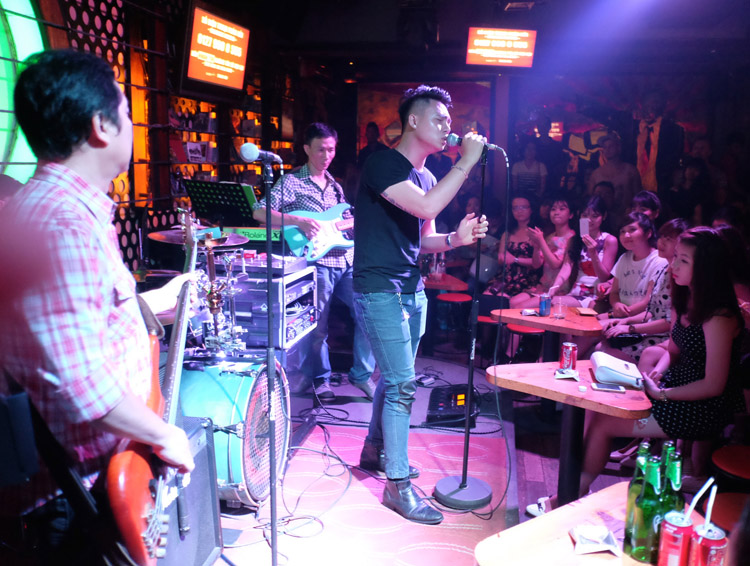
40 years ago the Vietnam War ended, also known as the "Rock'n'Roll War". He influenced countless bands, and their music influenced the warriors. The protests against the war led to the golden era of rock music and Woodstock. While this still has an effect in the West today, it looks quite different in the former war country Vietnam. eclipsed reports from Ho Chi Minh City and Hanoi.
The evening street sound of Ho-Chi-Minh City, the former Saigon, is still full of moped rattling as exotic music sounds slide in between. They come from a city park. You can clearly hear a hint of Asian pathos. A singer, dainty, steadfast and rushing with red flags, sings patriotic pop. "Nhạc Đỏ", Red Music, glorifies the heroic deeds of men and women who left their families to join the struggle against the French and Americans.
Admission to the show is free. Nevertheless, only a few watch, half of them are foreigners. Life pulsates a few corners further, in a kind of Bukowski memorial mile: drunkards, prostitutes, shoe shiners, junk sellers and tourists push their way through the heat of the dawning night. Sound shreds are drifting from the bars: Asiapop, US Country and Anglo-American Poprock.
Vietnam, America, rock music - that used to be a triad with a very special aura. Fascination and horror. Intoxication, violence and resistance. Rock'n'roll war. The New York Times christened the Vietnam War, in which three million Vietnamese and 58,000 GIs lost their lives. He influenced countless bands and animated them to music, which in turn influenced the warriors.
Many US soldiers were inspired by guitar rock and soul, by the sound that was at home a way of life. They inhaled Jimi Hendrix or the Rolling Stones in front of AFN radio and on turntables. The songs from the homeland became the soundtrack of a shitty existence in a foreign, hated country. At the same time they gnawed at their self-image, as many musicians of the late 60s agitated against the war.


